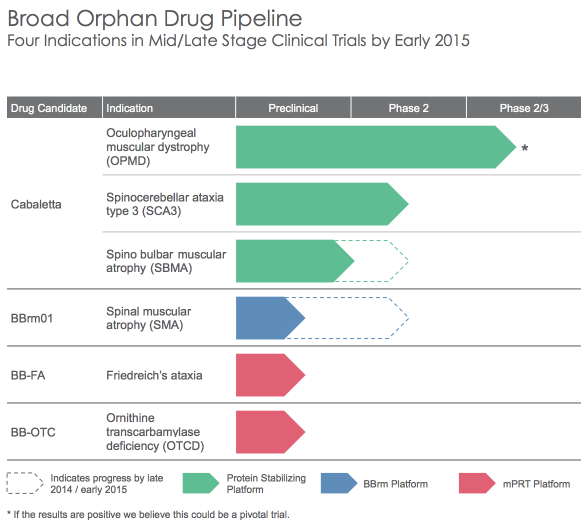Cabaletta is a mutant protein stabilizing platform based on a small repurposed molecule. Mutant unstable cellular proteins are the cause of several genetic diseases known as PolyA/Poly Q, including OPMD, SBMA and SCA3 and several others. These pathological proteins aggregate within cells, eventually leading to cell death. Our data to date from preclinical studies from both cells and animal models, indicates that our Cabaletta platform has the potential to prevent mutant protein aggregation in humans. We are currently conducting a Phase 3 clinical trial to assess its efficacy in treating Oculopharyngeal Muscular Dystrophy (OPMD). We develop the clinical plan for two additional diseases: Machado Joseph disease, or SCA3 and Kennedy’s disease, or SBMA.
BBrm is a read-through platform based on a small repurposed molecule. The platform enables the read-through (or bypassing) of genetic defects called nonsense mutations or stop codons that interfere with normal protein formation. Based on our preclinical data this drug platform has the potential to treat six different diseases caused by nonsense mutation. The BBrm platform is in development and preparation Phase 2 clinical studies for our lead indication in Spinal Muscular Atrophy (SMA).
mPRT is a mitochondrial protein replacement platform that is based on biological fusion proteins. The platform is aimed at Mitochondrial protein deficiency diseases and is capable of replacing missing or mutated proteins into mitochondria and restoring cell function . This platform is currently in preclinical development for two diseases: Friedrich’s Ataxia and Ornithine Transcarbamylase Deficiency. There are over 100 genetic diseases that are caused by a missing or mutant protein that has critical role in the normal mitochondrial function.

